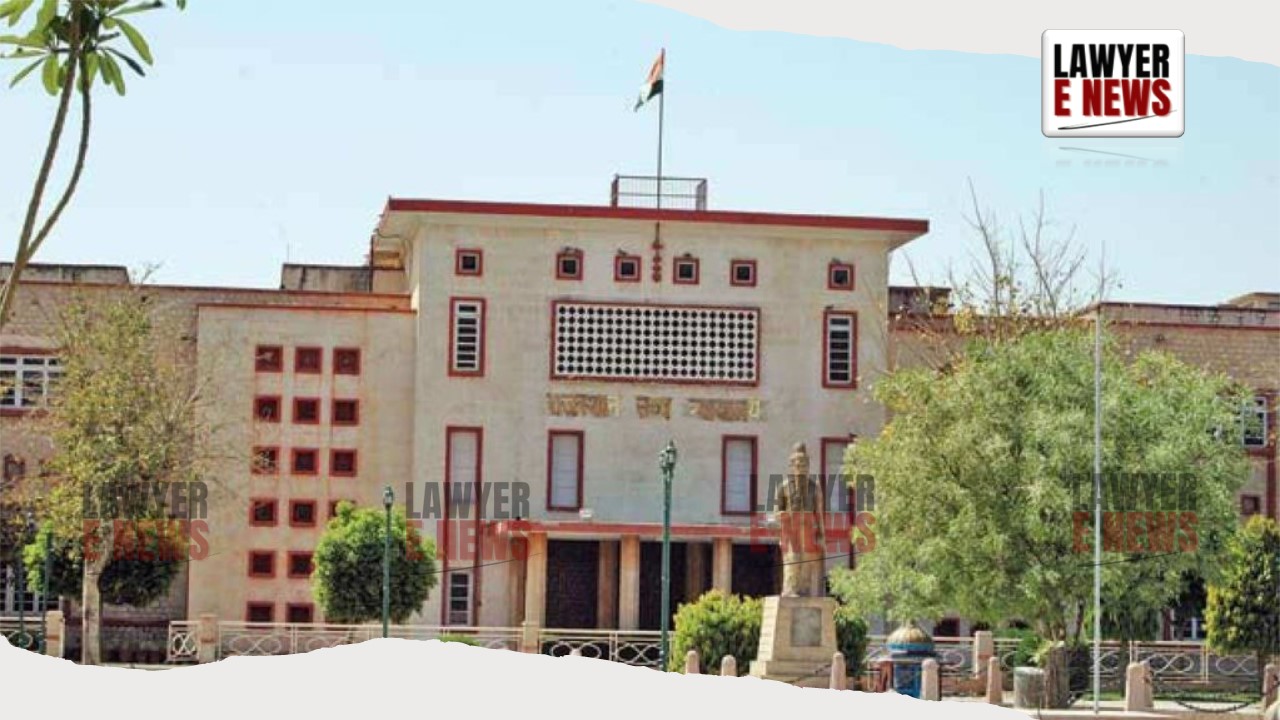-
by Admin
15 February 2026 5:35 AM



The Rajasthan High Court quashed the criminal proceedings against Radhey Shyam Agrawal and Mahendra Kumar Agrawal in a case of alleged unauthorized construction. The court upheld the proceedings against Ravindra Kumar Agrawal, emphasizing the requirement for concrete evidence and proper legal procedures in such cases. The judgment was delivered by Justice Sudesh Bansal.
In a significant ruling, the Rajasthan High Court quashed the criminal proceedings against Radhey Shyam Agrawal and Mahendra Kumar Agrawal in a case of alleged unauthorized construction. The court upheld the proceedings against Ravindra Kumar Agrawal, emphasizing the requirement for concrete evidence and proper legal procedures in such cases. The judgment was delivered by Justice Sudesh Bansal.
The Jaipur Development Authority (JDA) had filed a criminal complaint against Radhey Shyam Agrawal, Ravindra Kumar Agrawal, and Mahendra Kumar Agrawal, alleging unauthorized construction on Plot No. B-40, Ganesh Nagar, Jaipur. The complaint was based on a factual inspection report dated November 12, 2010, which identified illegal construction in the rear setback portion of the plot. Subsequently, the Additional Chief Judicial Magistrate No.1, JDA, Jaipur, took cognizance of the offences under Sections 31-32 of the JDA Act on December 2, 2010, and issued summons to the accused.
The High Court observed that Radhey Shyam Agrawal and Mahendra Kumar Agrawal were not the registered owners of the plot. The lease deed was solely in the name of Ravindra Kumar Agrawal. Justice Bansal remarked, "The implication of petitioners No.1 & 3 by the JDA without verifying its own record and without examining the titled document (registered lease deed) of the Plot No.B-40, seems to be wholly arbitrary and without any basis."
The court addressed the issue of limitation raised by the petitioners. It was argued that the construction was over 25 years old, making the complaint time-barred. However, the court held that the limitation period as per Section 468 Cr.PC would commence from the date of the factual inspection, i.e., November 12, 2010. Thus, the Magistrate's decision to consider this issue after recording evidence was upheld.
The petitioners contended that the notice for removal of the illegal construction was not served personally, violating Sections 86 of the JDA Act and 64 of the Cr.PC. The High Court agreed with the Magistrate's view that this was a mixed question of fact and law, to be resolved after evidence was presented.
Justice Bansal emphasized the principles laid out in Adalat Prasad vs. Rooplal Jindal, which preclude magistrates from reviewing their own orders of cognizance. Consequently, the petitioners had to seek relief under Section 482 Cr.PC.
"The cognizance taken by the Magistrate on the criminal complainant filed by the JDA for offences under Sections 31-32 of the JDA Act qua petitioners No.1 & 3, is contrary to the record and such order of cognizance qua petitioners No.1 & 3, suffers from inherent lack of jurisdiction and sustaining such order of cognizance qua petitioners No.1 & 3 would lead failure of justice," noted Justice Bansal.
The High Court's decision underscores the importance of proper procedural adherence and the verification of ownership records before implicating individuals in criminal complaints. The quashing of proceedings against Radhey Shyam Agrawal and Mahendra Kumar Agrawal provides relief to them, while the continuation of the case against Ravindra Kumar Agrawal emphasizes the need for clarity and evidence in allegations of unauthorized construction.
Date of Decision:May 14, 2024
